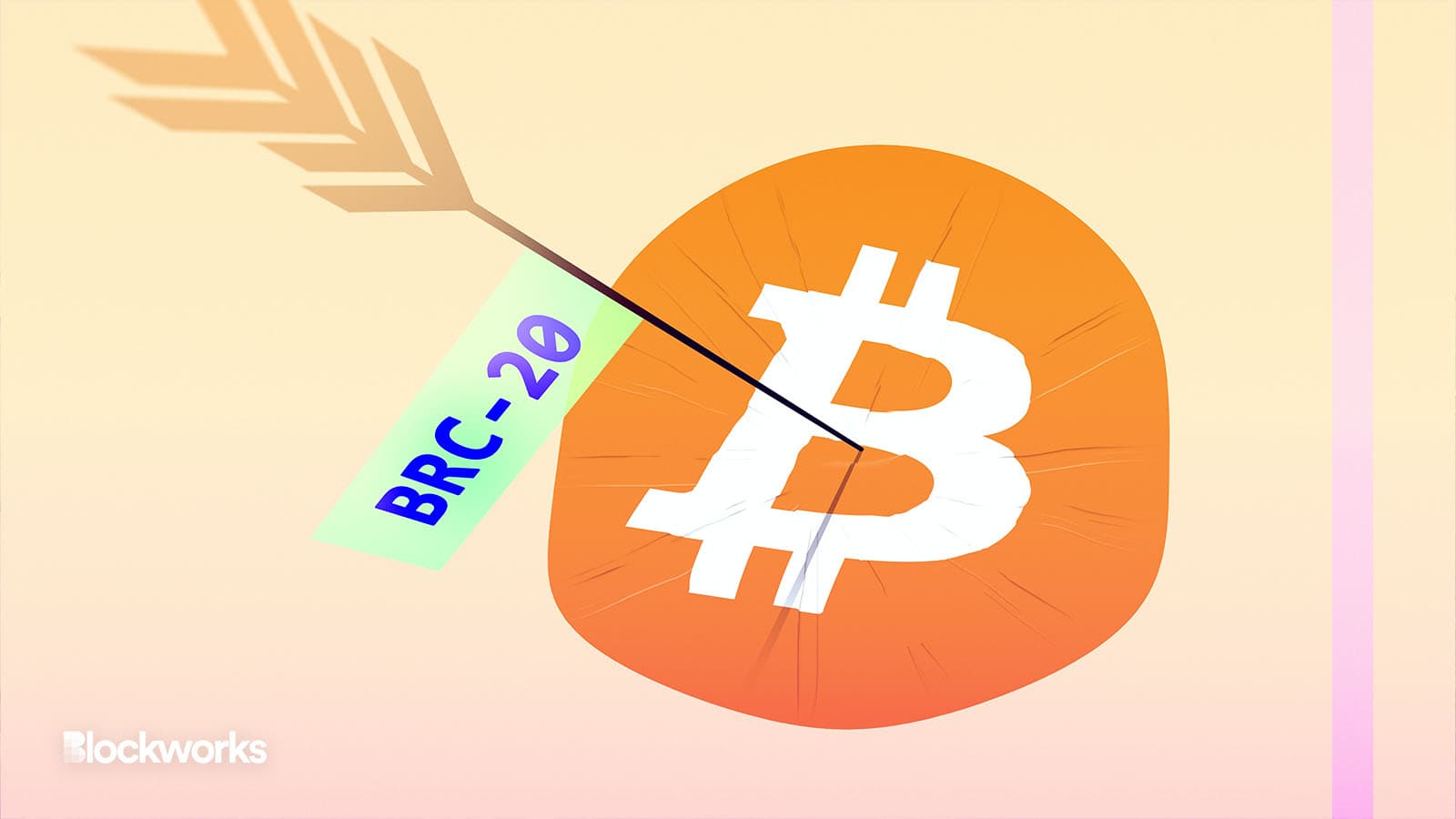Bitcoin Ordinals creator wants to clean up BRC-20 standard
Casey Rodarmor proposes “Runes” to improve BRC-20 clutter that complicates the Bitcoin system and makes it less efficient

Maurice Norbert/Shuterstock, modified by Blockworks
Casey Rodarmor, inventor of Bitcoin Ordinals, has proposed a new system for creating digital assets on the Bitcoin network, in a bid to offer a cleaner version to the current BRC-20 standard.
In a recent blog post, Rodarmor pointed out that BRC-20, while popular, leads to the unnecessary proliferation of “junk” UTXOs (Unspent Transaction Outputs), an issue he proposes to address with “Runes.”
Ordinal Theory, first introduced in January, is a technique that assigns numerical identifiers to “sats,” the smallest unit of bitcoin. The method utilizes a First-In-First-Out algorithm meaning the first sat recorded is the first one to be utilized or processed.
It paved the way for inscriptions — essentially Bitcoin NFTs — that skyrocketed in popularity in April, rising from 1.2 million to today’s 34.7 million units, according to the latest figures from a Dune dashboard.
Inscriptions have been criticized for increasing the complexity and cost of transacting on the Bitcoin network, and leading to unintended consequences.
The main problem, according to Rodarmor, is that this clutter complicates the system and makes it less efficient, leading to higher costs. Runes aim to simplify how fungible tokens can be issued, transferred and burned within the Bitcoin ecosystem.
Specifically, balances would be held by UTXOs, which can contain varying amounts of any number of runes. A transaction would also contain a protocol message if it has an output with a specific script, allowing for easy identification of transactions.
“Should such a thing exist? I don’t know. It’s about as simple as possible, does not rely on off-chain data, does not have a native token and fits nicely into Bitcoin’s native UTXO model,” Rodarmor mused.
The approach, Rodarmor said, could attract users and developers from systems with less efficient on-chain operations, thereby boosting Bitcoin’s popularity and encouraging broader adoption.
“On the other hand, the world of fungible tokens is a near totally irredeemable pit of deceit and avarice, so it might be a wash,” he said.
Get the news in your inbox. Explore Blockworks newsletters:
- The Breakdown: Decoding crypto and the markets. Daily.
- 0xResearch: Alpha in your inbox. Think like an analyst.






